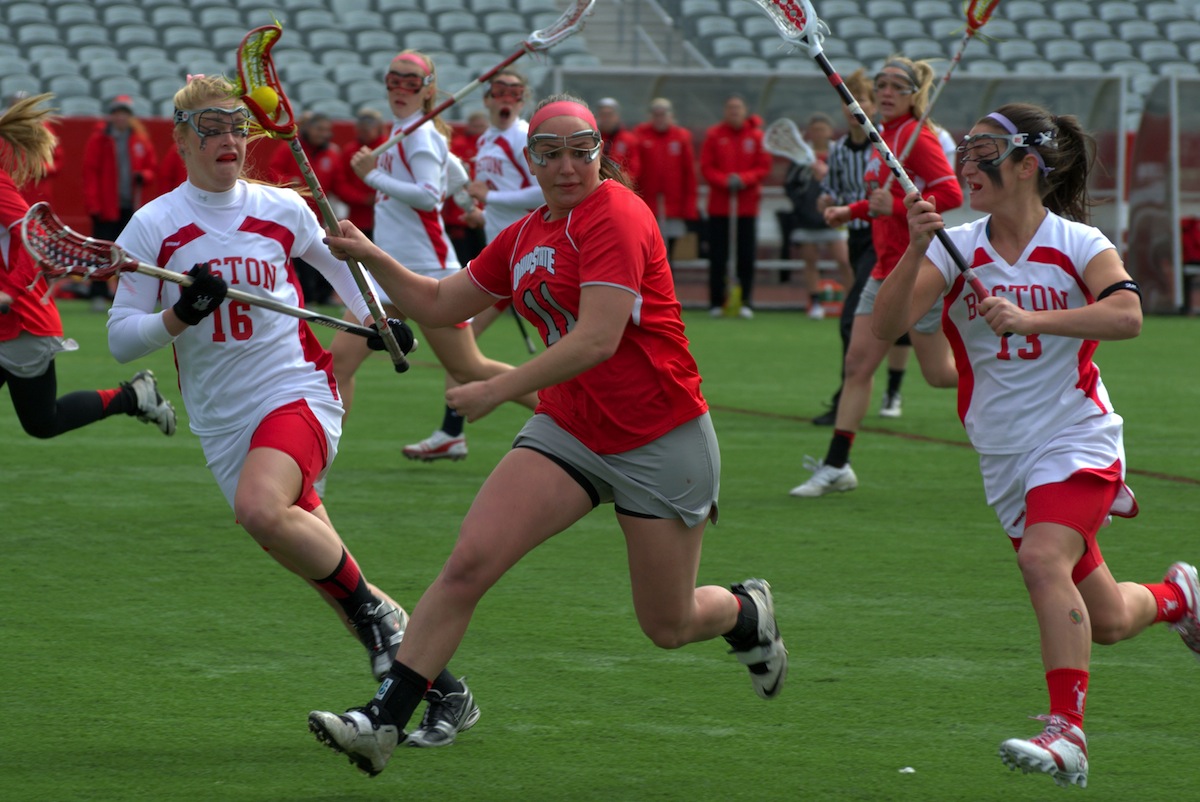City Councilor Pitches ‘Bill of Rights’ for College Athletes in Boston
City Councilor Josh Zakim wants to create regulatory safeguards in Boston not only for athletes’ brains and bodies, but for their overall education, too.
In a pair of proposed ordinances that athletics officials said could “set the bar” nationally when it comes to college student athletes’ civil rights, Zakim is hoping the city will adopt legislation that would hold schools more accountable and guarantee an athlete’s access to health care and a full educational opportunity, regardless if a player has to leave a team due to an injury. “This is about basic fairness,” Zakim told Boston. “Student athletes deserve certain protections. It’s the responsibility of the city to protect these students, and the responsibility of the schools to do the same.”
Modeled after legislation passed in California in 2012, one of Zakim’s proposed laws, called the “College Athlete Bill of Rights,” would make sure that a player who receives an athletic scholarship from a college or university receives an equivalent scholarship commitment from the school in the event that they suffer an injury that ends their time on a sports team, or if there’s friction between a player and a coach, and the coach removes the athlete from the team.
“Right now with athletic scholarships, even if there’s not an injury, there are no standards in place that says ‘this is a four-year commitment,’” said Zakim. “We are a hub of higher education, and there are several schools in the city that I believe would fall under the terms of the ordinance.”
The Bill of Rights would also reimburse any college athlete’s medical bills in the event they were injured while playing. This coverage would also be extended beyond an athlete’s time playing for the school, according to Zakim. “If a college athlete requires medical care beyond his or her playing career, the university will be responsible for providing that care or covering its cost,” he said.
Zakim said he worked on this proposal with the College Athletes Players Association and California Senator Alex Padilla’s office. CAPA was the organization that led to a similar Bill of Rights in California in 2012, which was later signed into law.
Ramogi Huma, executive director of the National College Players Association and president of CAPA, said both organizations would be endorsing Zakim’s ordinances. He said he worked closely with the Boston official to craft the Bill of Rights, and that Zakim’s wording would set a national standard for fairness for college athletes. “These issues have gotten more attention, and they looked into our previous efforts and wanted to make sure college athletes in Boston had the same protections,” said Huma. “But they have actually taken it to another level.”
Huma applauded Zakim for including safeguards that would require schools to cover “out-of-pocket” medical expenses for student players, and also protect their education in the event of a serious injury. “This ordinance actually really would set a great bar for how colleges treat their players,” he said.
Huma said he expects that there will be some blowback from local schools, however, much like he saw when a similar ordinance was introduced in California under their leadership. “I definitely expect, unfortunately, for universities to push back like they did in California. It’s very revealing to see these universities claim they are protecting these players, but don’t want these protections as law,” said Huma. “I would be pleasantly surprised if they didn’t push back, but I expect the schools to push back on this.”
The Bill of Rights proposal is accompanied by a second bill, which would force schools to set up emergency medical action plans for all game-day events, and require the use of an on-call neurotrauma consultant. According to Zakim, the companion ordinance, called the “College Athlete Head Injury Gameday Safety Protocol,” would institute health and safety measures specifically related to head, neck, and spine injuries, which are common in college sporting events.
Zakim will present both ordinances during Wednesday’s City Council meeting. He did not work with local colleges and universities on crafting the proposed legislation, but a spokesperson from his office told Boston the councilor “[looks] forward to hearing input from local institutions, but also believe these are inalienable rights.”
If voted out favorably by the City Council, the pair of ordinances will then be referred to the Committee on Government Operations, which would hold a public hearing in the coming months.
During that hearing, Zakim hopes to hear from representatives from area schools to get input on ways they could improve the ordinances before trying to make them laws. “This not me to going after anyone. I can’t speak for them, but if they are serious about protecting college athletes, this shouldn’t be especially controversial,” he said. “You can look up the tuition and endowment numbers—these schools have resources. I don’t know what the exact numbers are, but college athletics generate quite a bit of revenue. The students putting on these athletic performances are subjecting their bodies to significant trauma, and are not being protected sufficiently when they should be.”
Below is Zakim’s full Bill of Rights proposal:
Ordinance – College Athlete BOR



